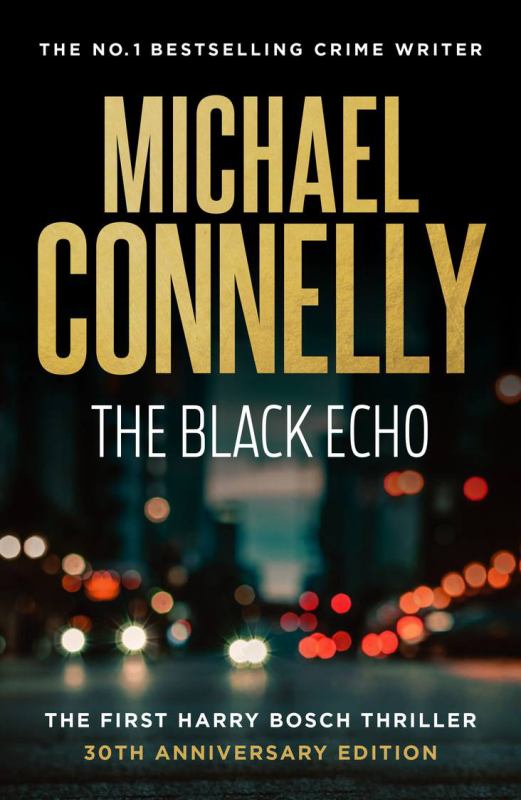When you take on a project to read a detective who’s been going for thirty years, it can be daunting at the beginning. In 1992, when Bosch debuted on the page, the Vietnam War was still providing residual trauma to a nation that had nothing to show for their pointless incursion, and fictional law enforcement was allowed to be actively homophobic and more than casually transphobic into the bargain.1 Michael Connelly’s The Black Echo introduces one of the better named policemen to the criminal milieu, but the man and the author are, at the outset, very much products of their time.
When Detective Harry Bosch is called out to inspect a body in a drainpipe, what was initially discounted as a simple overdose immediately becomes apparent as a murder. Bosch identifies the victim as someone he knew back in the tunnels of Vietnam, and almost immediately finds himself deeply embroiled in a case spanning jurisdictions, departments, and decades.
The case that Bosch works is convoluted and labyrinthian, and it comes together. There are multiple snags, blind alleys, and interfering third parties. A lot of Connelly’s work here is so tightly wound that it feels like it could break, but it mostly satisfies even with its stilted, contraction free dialogue. Yet The Black Echo is a case of one step too far with the revelations, and the suspension of disbelief that until the end had lain dormant suddenly stretches like a tightrope. Whether the final ending works at all is entirely up to the reader’s individual taste.
Connelly, a veteran of the crime beat, created Harry Bosch and immediately realised he had the juice for a novel. Bosch is an immediately well-realised character, the stereotypical jazz loving outsider who gets results, you stupid chief. He’s under investigation by Internal Affairs, more out of a grudge than any actual misconduct, and he lives in a nice, but small, house bought just before the LA real estate boom on the strength of his name and story being used in a made-for-TV movie. That last one’s a real point of difference.
There are other genre tropes that don’t work so well. Bosch is on the case with a female FBI agent, the even more outlandishly named Eleanor Wish; there’s no reason for them to sleep together except that a man and a woman have to sleep together if they’re coworkers with a corpse between them. There are professional standards in place for a reason, but loose cannons don’t have to follow them.
The Black Echo is undeniably a product of its time, which is by turns charming (the constant need for characters to pull over to use pay phones) and less so (the occasional transphobia, including slurs so antiquated you forgot they existed). There’s a secondary plot that ties into the main that is unsavoury in multiple ways. There’s a degree of benefit of the doubt when it comes to the mouths many of the words are coming from; you can get away with a teen criminal or a troglodytic policeman spouting homophobic words and essentially committing hate crimes, but when your ostensible hero provokes someone in an interrogation by asking “you a faggot, Sharkey?”, it’s harder to hide. Even if Bosch says this to get a rise out of his target, you still would have liked to think he was above such tactics.
Of course, in 1992, most readers wouldn’t have batted an eyelid. Others would have just accepted it as a lump that had to be taken. Now it’s the bitter pill of the past, and it’s hard to swallow. Disappointing, but not enough so to derail the book or recommend against pursuing future Bosch books. You’ve got to have a certain sort of constitution to read books with police heroes at all, right?
The Black Echo isn’t perfect crime fiction, but it has enough to more than recommend it. Some of its excesses are only clearer with the benefit of hindsight, but its biggest problem would have been glaring even in 1992: Connelly slightly over gilded the lily, and his detective pays the price for it. Bosch will return, and we’ll see how far up he can go from here.
- They’re still allowed, even encouraged, to be this and more in real life, but on the page they’re given a little less leeway these days. ↩︎


